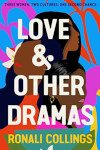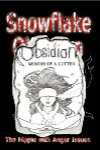Maggie O’Farrell – This Must Be The Place
Posted 13th September 2019
Category: Reviews Genres: 2010s, Angst, Commentary, Domestic, Drama, Psychological
1 Comment

Hopefully it is.
Publisher: Tinder Press (Headline)
Pages: 483
Type: Fiction
Age: Adult
ISBN: 978-0-755-35880-9
First Published: 17th May 2016
Date Reviewed: 13th September 2019
Rating: 3.5/5
Daniel is outside; across the fields he spots a man who may have a camera. When he tells his wife she grabs a gun. Living in the middle of nowhere in Ireland, the American is generally used to his wife’s reactions, born as they are from her past. In addition to this – even though it’s a particularly compelling aspect of his life story – there is more, the children back in America and the father he doesn’t want to see.
This Must Be The Place is a novel of multiple subplots and narrators which stretches from the 1980s to the 2010s with a brief trip to the 1940s. An effective family saga in one book, it’s more about the journey of the people and their relationships than any destination.
This book is the sort that will either enthrall you or frustrate you – it’s incredibly literary, the artistry itself the mainstay rather than the content. Daniel, one of the many characters, has built his career on his love of linguistics, and to an extent O’Farrell herself has adopted the study of the subject to use in this book. A lot of the time, the writing is poetry in prose; O’Farrell uses language both for its art and for its characters, with Daniel, the only first-person narrator, the one through which most of her passion has been funneled. You know he’s American, this Daniel who’s in Donegal, Ireland, before he tells you, his dialect matching his home country, the first hint of the linguistics to come.
O’Farrell’s play with linguistics extends to her chapter headings – phrases taken from the main body of the chapter in question; the book’s title is also in the text, as a line of dialogue. It’s an interesting feature because whilst the phrases chosen tend to provide you with a hint of what’s to come, they aren’t always ‘clever’, so to speak, O’Farrell showing a range of concepts that can be used to both similar and differing results. (One chapter is but a series of photos and captions, a fictional auction catalog.) All do, however, link back to the idea of poetry, of meaning in the simplest of phrases. And, most often, you can spot the effort made in each line. It’s all rather stunning.
The characters themselves, away from the artistry, are well written and developed. Development is limited in the traditional sense due to the plethora of people involved: Daniel and the children, and Claudette, his wife, are developed both over the course of the years written about and those before the book begun; the other characters mostly in terms of what came before. None of the adults are particularly nice. The children are pretty great, especially given the variety of poor hands their lives and parents have shown them. But the adults… whilst O’Farrell has indeed created real, believable people, and whilst they have some good traits, they’re difficult to read about, which is another reason this book is about the experience rather than anything else.
To look at the possibility for frustration, then: likely, if you haven’t read the book, are reading this (and have potentially read the views of others), and have weighed up the content in terms of your own interests, you’ll probably have a good idea by this point whether you’ll like it or not. The plot is pretty well formed and, for the number of characters, very detailed, but you do have to piece it all together yourself, and as much as it’s arty is also just a literary device. And sometimes, having to piece it together lessens the impact certain aspects may have. To be sure, not all of them – some of them have a lot of impact regardless of how they’ve been woven through the pages, brief moments that take up mere lines being perhaps what you’ll remember most – but a lot will lose their impact. Chronological order would’ve been better.
On that note of impacts that do work regardless, they relate to up-to-the-minute occurrences. Agency and consent in the medical sphere; gun violence in American cities, written in a way that shows both how awful it is and how usual, now, an occurrence. Then there is the domestic sphere, the family saga aspect evident in the theme of children: conversations and concepts over having them, the effects of the past – things before they were born – on those children, and various parental issues and rights.
There are also a few extra characters that dilute the plot a bit, some familial – presumably included for more background and to show how problems can continue in families – and one in particular that seems to have no bearing on anything else, a person used to show Daniel in a different way where it might have been best to make the chapter another of his first-persons. You also end the book with questions that aren’t resolved, some whole points on their own, others minor details that would nevertheless have rounded it all off further. And for all the characters, one or two aren’t included that may have better explained those that are included.
So, no, not really escapist. Not your usual idea of reading for escape, for fun – the fun is under that more studious, literary, definition.
Anyway, the older, longer, sluggish Marithe had looked up at the stars [decorative, on the ceiling] and asked her mother, who was sitting in the char opposite, whether it would come back, this sense of being inside your life, not outside it?
Claudette had put down her book and thought for a moment. And then she said: probably not, my darling girl, because what you’re describing comes of growing up but you get something else instead. You get wisdom, you get experience. Which could be seen as a compensation, could it not?
Marithe felt those tears prickling at her eyelids now. To never feel that again, that idea of yourself as one unified being, not two or three splintered selves who observed and commented on each other. To never be that person again.
For Calvin, she feels a simultaneous jealousy and pity. He sill has it, that wholeness, that verve. There he is, on the trampoline, completely on the trampoline, not worrying about anything, not thinking, but now what? Or: what if? Pity, because she knows now he’ll g through it. He’ll have to lose several skins; he’ll wake up one day wearing new, invisible glasses (p.456).
This Must Be The Place is a time investment – a long novel, one needing your attention. In terms of its genre, over all the payoff is worth it (certainly I enjoyed it a lot) but it’s not without its problems.
1 Comment
Comments closed























September 17, 2019, 12:11 pm
Its been quite a while since I’ve read such a family saga. Alas I’m not sure this one appeals to me. Something that may (or may not) work, the mention of multiple subplots and narratives across such a lengthy time frame does put me off a bit.